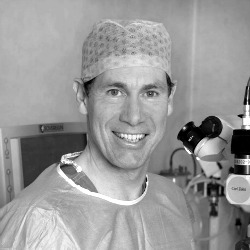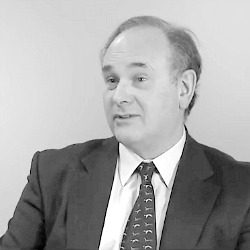Expert surgeons

Mr Keith Bates
MA (OXON) BM BCH (OXON) FRCS FRCOphth
Consultant Ophthalmic Surgeon

Mr Robert Morris
BSc(Hons), MB BS (Hons), MRCP, FRCS, FRCOphth
Consultant Ophthalmic Surgeon

Mr Paul Rosen
BSc(Hons), MB ChB, FRCS, FRCOphth, MBA
Consultant Ophthalmic Surgeon
Eye surgery available in London and the Southeast
This eye treatment is available in:
Lens Replacement Process
The operation is like the one performed on cataract patients. It’s painless as we perform it under local or topical anaesthetic, with some sedation to relax you further if required. On the day of surgery and once in the hospital we will dilate your pupils with eye drops. Before surgery the area around your eye is cleaned. The technology used is a machine called a phacoemulsifier (phaco) and some patient are suitable for laser technology (femtophaco). The surgeon makes a micro-incision on the side of the cornea. The incision is no more than 2.5mm and a tiny probe inserted into the eye. This ‘phaco’ device emits ultrasound waves that break up the hard lens. The same probe removes the lens material by suction.
Once removed the surgeon replaces the original lens with the lens implant. They fold the implant and insert through the tiny incision which unfolds once in place in the eye. You can then go home to relax the same day. From then you can look forward to a rapid and pain-free recovery.
Many patients remark on the immediate improvement in their vision within 48-72hrs. You can return to work or your usual activities within a day or two: the principal activities to avoid are getting water in your eye or rubbing your eye for 3 weeks.
The second eye is treated within a couple of weeks. The true benefit of Lens Replacement is evident after we’ve treated both eyes. The brain will then have had time to adjust to its new visual system.
How long will Lens Replacement take?
The operation itself will take about 15 minutes. You will need to allow for about 3 hours in the hospital. You will need someone to collect you or we can arrange transport for you.
Lens Replacement and technology
In the past, replacement lens implants were all fixed-focus. These lenses gave clear distance vision but required the use of reading glasses.
Advances in lens technology provide multi-focal vision. These lenses give patients clear vision up close, at intermediate distances and far away. Lenses are now available that can also correct astigmatism.
A further option which some patients prefer, is to use one eye for distance and one for near vision, known as monovision.
We will discuss the most appropriate lens for you, your eyes and your lifestyle. Our goal will be to reduce, or, if possible, stop, your need for bifocals or reading glasses.
Hear expert eye surgeon Robert Morris discuss Lens Replacement
As seen in
What patients say
Weekly eye treatment updates
We regularly share updates and video blog posts on the most common eye treatments


















